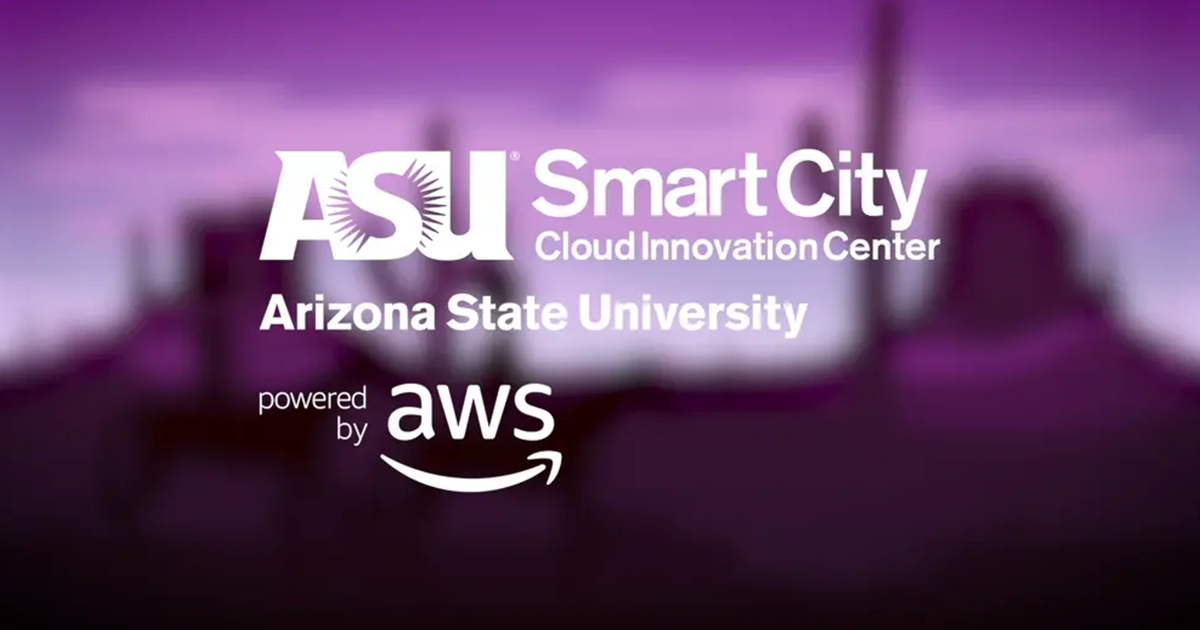

Data Science is fueling the future of economic development
Published: 09/01/2020
Updated: 10/12/2021
GPEC and cities partner with ASU Cloud Innovation Center to develop tech solutions to increase economic activity; meet needs of Greater Phoenix
The Greater Phoenix Economic Council (GPEC) prides itself on being a data-driven organization, and those efforts have been amplified through the integration of cutting-edge technologies and sciences.
The insights gleaned using data science steward GPEC’s marketing and business attraction strategies, and the implementation of data science allows the organization to better target businesses and keep Greater Phoenix on the map. For background, data science is a multi-disciplinary field using scientific methods, processes, algorithms and systems to extract knowledge and insights from structured and unstructured data. Data science enables GPEC to make impactful decisions and drive value via machine learning algorithms and artificial intelligence.
During a podcast with DCI tiled, ‘The Pivot,’ GPEC President & CEO Chris Camacho explained the importance of data science and how the organization has elevated its focus centered around the discipline.“How you sequence that publicly available data with coding and algorithms enables you to really track every word that’s said within forward-looking statements, SEC filings, comms channels,” he says. “And by doing so, we really begin to bolster our research turn, marketing turn, business development work, so we’re targeting the right companies.”
While GPEC has been making strides in the understanding and application of data science over the last four years, a recent venture has taken the organization to a whole new level.
Arizona State University’s ‘Smart City Cloud Innovation Center’ powered by Amazon Web Services AWS (ASU CIC) recently collaborated with GPEC and the cities of Phoenix, Gilbert and Surprise, Ariz., to apply Amazon’s Working Backwards Innovation process to support regional economic development efforts. The ASU CIC is a strategic relationship with AWS on ASU’s innovation campus – SkySong. The mission of the CIC is to drive Innovation Challenges that materially benefit Greater Phoenix and beyond. The CIC does this by solving pressing community and regional challenges, using shareable and repeatable technology solutions from ideation through prototype, as a service for the greater human good.
“GPEC was the perfect partner for the Data Science Initiative. The combination of subject matter expertise on economic development and the ability to engage with their municipal partners made this a successful collaboration,” said CIC General Manager Ryan Hendrix. “The CIC provided GPEC the ability to explore the data opportunity and design a solution that best meets the needs of communities in Greater Phoenix.”
Traditional business attraction efforts rely on procuring project deals at the individual company level and is dependent on the right timing, cost, fit of the market, and relationship to win. This type of deal fostering system has limitations requiring finite hours and personnel to track down a deal, research the market, study the company need, and monitor and manage changing business prerequisites.
As the regional economic development organization, our goal is to be the natural aggregator and host for information gathered regarding the market conditions, company movement and changes in the business environment. The implementation of data science at GPEC sets the organization apart from other economic development organizations with overperformance of business attraction efforts due to increased capacity in production of market insights, business intelligence, and strategic targeting of companies that best fit with the local ecosystem.
Using the Working Backwards Innovation process, the group developed a framework for a solution which makes use of machine learning combined with robust data visualization capabilities and a well-designed user interface to help staff identify the most actionable intelligence with the goal of increasing economic activity.
GPEC’s core mission is to attract and grow quality businesses, and advocate for Greater Phoenix’s competitiveness, so the original objective of the Data Science Initiative was to employ state-of-the-art analytical and automation platforms to accelerate recruitment, but that was expanded to include the monitoring of the economic recovery due to COVID-19.
Directly related to our mission as economic developers, we advanced tools allowing GPEC and its partners to curate economic data to enhance decision-making during site selection and project expansion phases. This includes insights into lists of companies and size; national, state and regional data showcasing employment of the industry; GDP, productivity and labor availability; as well as regional occupancy by industry and number of graduates in a related program that match the industry filter.
Data science is the future of economic development. GPEC and its partners are proud to lead from the front on the adoption and integration of the practice into everyday economic development functions as we continue to serve as strategic partner to companies across the world as they expand or relocate to Greater Phoenix. During the past 32 years, GPEC has fueled the regional economy by helping more than 895 companies, creating more than 163,000 jobs and $33.4 billion in capital investment, and data science will only make our team more strategic and ultimately more successful.